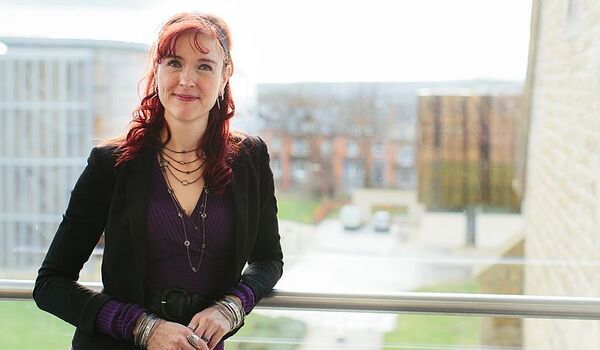Older people have smaller but closer social networks
- Centre for Decision Research

Social networks can consist of close friends, family members, neighbors, and more peripheral acquaintances. Policy makers are increasingly interested in improving well-being in older adults by increasing their social networks and combating loneliness. However, few studies have actually examined whether there are age differences in social networks and associated well-being across the adult life span. Those studies that have been conducted have mostly focused on age-restricted samples of older adults or specific geographic areas, and thus their findings may not apply to the general US population.
My colleagues Andrew Parker (RAND), JoNell Strough (West Virginia University) and I recently published findings from social network data collected through RAND’s American Life Panel, a national sample of adults of diverse ages. Below we report on five of our main findings and conclusions, while also building on the previous literature.
1. Older people reported smaller social networks
We asked participants to report the number of people from different social groups they had “regular contact with in the past six months” including “face-to-face, by phone or mail, or on the internet.” The social groups included close friends, family members, neighbours, and others.
Overall, we found that older adults reported smaller social networks. Younger adults under the age of 30 reported having very large social networks, often consisting of hundreds of social contacts. Among adults older than age 30, social network size was much smaller, compared to those in their 20s.
Perhaps it is important to note that our survey did not ask people to distinguish between social contacts that were maintained online from social contacts that were maintained face-to-face. Such distinctions may be difficult to make, because many of today’s social contacts are maintained in more than one way. Regardless, online social networking sites may have allowed younger people, in particular, to maintain large social networks.
2. The number of friends did not change with age
The number of close friends was stable across the adult life span. Older adults’ smaller social networks were largely due to reporting fewer acquaintances. Thus, older adults may have fewer social contacts, but their social networks are more concentrated on close friends – who may ultimately matter to people the most.
3. Older age was related to better well-being
Older adults’ smaller social networks did not undermine their well-being. In fact, older age was actually associated with reporting better well-being. Although stereotypes of older adults in many cultures may paint older adults as sad and lonely, research in the psychology of aging consistently suggests that younger adults are actually more likely to report feeling sad and lonely. Moreover, some studies have even suggested that it tends to be the younger adults who admit to wishing that they had more (or different) friends.
4. Better well-being was associated with the number of close friends
Having more social contacts did not make people feel better, in that self-reported well-being was not associated with the overall size of the social network. Instead, for people of all ages, self-reported well-being was greater among those who said that they had more close friends. Thus, across the adult life span, it was the number of close friends that mattered for well-being (even when accounting for the number of family members, neighbours, and acquaintances in the social network).
One reason for this finding may be that we choose our close friends, but not necessarily our other relationships.
5. The perceived quality of social relationships was more important than the quantity
We found that the reported number of close friends was no longer associated to well-being after feelings of social satisfaction were taken into account. In other words, it is possible for people to feel sad and lonely even when they have a lot of close friends, or to feel happy despite having only a few. What matters is how happy people are with the friends they have.
This finding suggests that interventions that aim to tackle loneliness may need to focus on helping people to feel more connected to the friends they already have rather than to increase the number of their social relationships.
This blog post originally appeared on The Evidence Base and has been reposted here with permission. Data collection and Andrew Parker were supported by the US National Cancer Institute (R21CA157571), and the US National Institute of Allergies and Infectious Diseases (R01AI118705). Wändi Bruine de Bruin was additionally supported by the Swedish Foundation for the Humanities and Social Sciences (Riksbanken Jubileumsfond) Program on Science and Proven Experience and the National Institute on Aging (P30AG024962).
Contact us
If you would like to get in touch regarding any of these blog entries, or are interested in contributing to the blog, please contact:
Email: research.lubs@leeds.ac.ukPhone: +44 (0)113 343 8754
Click here to view our privacy statement. You can repost this blog article, following the terms listed under the Creative Commons Attribution-NonCommercial-NoDerivatives 4.0 International licence.
The views expressed in this article are those of the author and may not reflect the views of Leeds University Business School or the University of Leeds.

